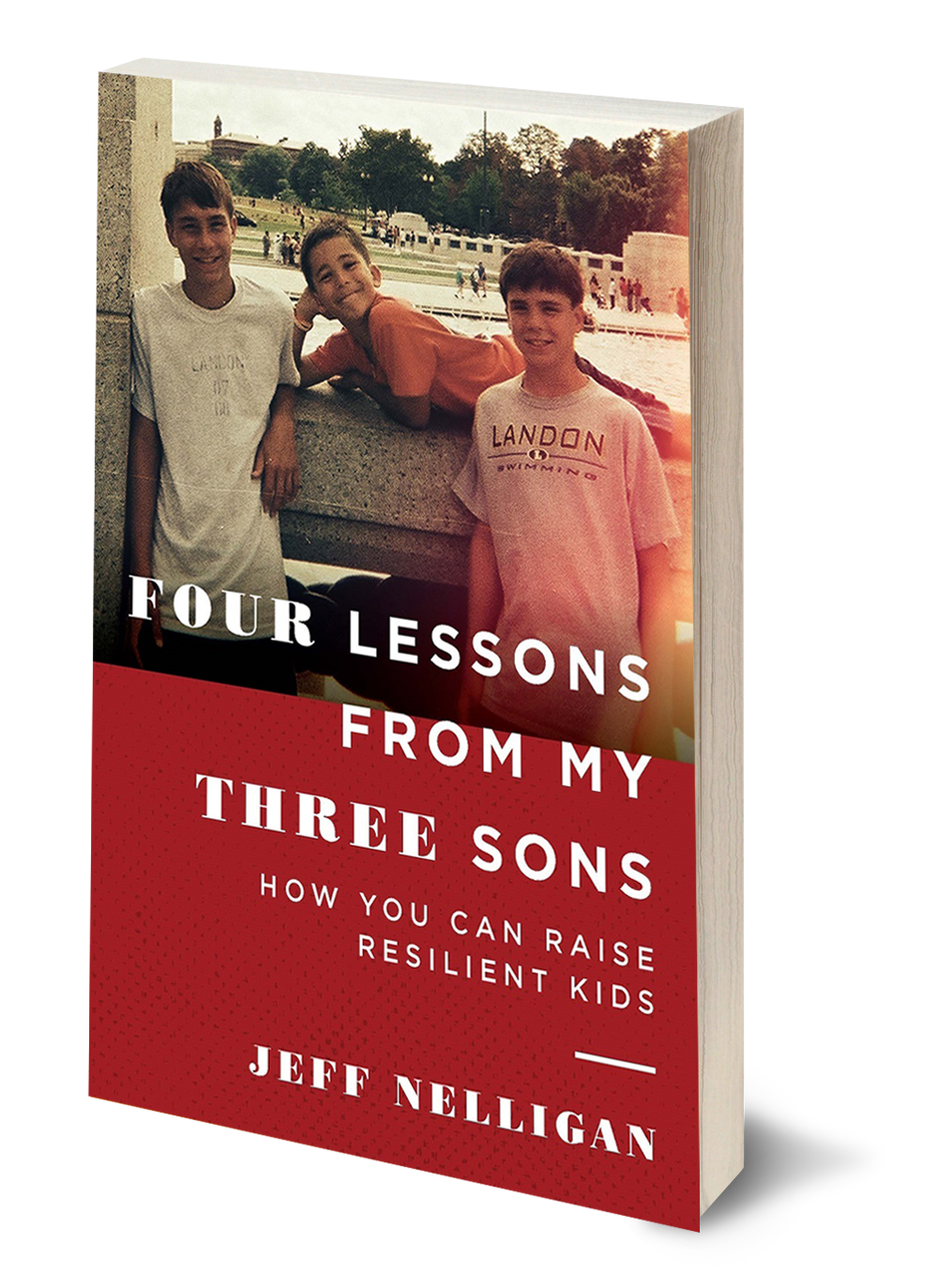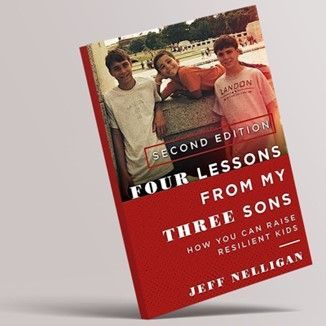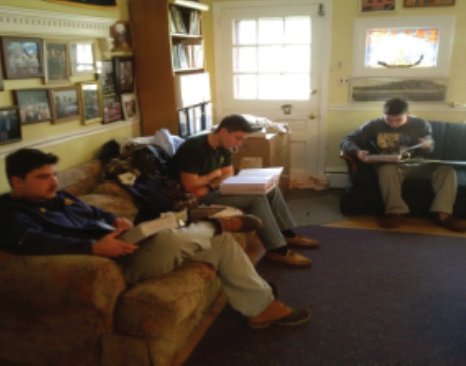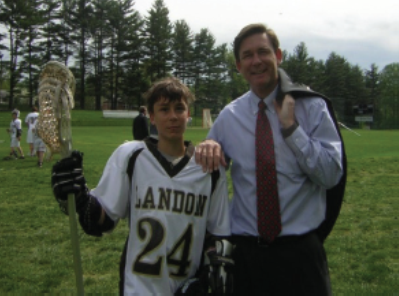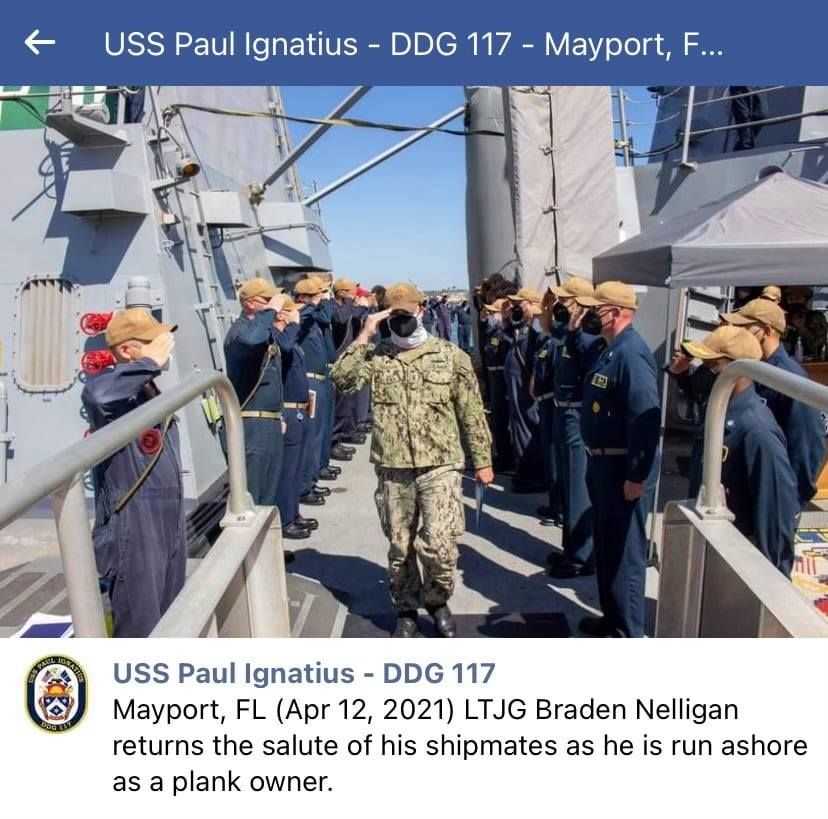Always model calm...
"Yeah, it's the end of the world."
It was a chilly November Sunday at the high school with the Nelligan Four. We’d
had contests to see which duo could get 50 consecutive throws of a lacrosse ball
without a drop, played the end-zone tackling game, kicked soccer balls all over the
place and ran sprints up and down field. Most fun of all was throwing routes to the
boys, even though I have an erratic arm.
The afternoon was winding down and as a regular ritual end to the weekend I said,
“Hey, one more completion and we’ll go get those donuts. Go long, pal” I said to a
kid and then I unleashed a rainbow down field.
As the middle kid maneuvered under the long throw the two others were visibly
upset. “But Dad,” said the eldest in desperation, “You got fired from your job!”
“Yeah, it’s the end of the world,” I replied automatically, watching my pass sail
three feet beyond the middle kid’s out-stretched arms.
Junior was correct. I had just been fired from my job, the cruel fate of a political
appointee whose candidate finishes on the south side of an election. It was true
adversity and the whole family was increasingly anxious about finances, which
was captured by my son’s comment.
“OK men, let’s have a seat in my office,” I told them and we sprawled out at the
50-yard line.
“Look, I’m not going to give you any fairy tales. We all know I’m out of work. But
I’ll find a job – you know I’ll rally. I have you guys to keep me company and
besides, you saw me at QB today – I need to work on my deep ball. So yeah, it’s
the end of the world. Now let’s go get those donuts and when we can’t afford them
you’ll be the first to know.”
“It’s the end of the world.” What a laconic utterance, framed between a lost job
and a bad pass. I couldn’t ignore the obvious but I was determined to set an
example of calm and lower the temperature. I sought to completely deflate the
drama balloon. Perspective, folks: Nothing is ever as bad as it seems. Everyone has
tough times and there are only three choices: Lie to yourself, wallow in self-pity or
drive forward.
Acknowledging my situation with equanimity was the best way to prove a point to
the boys and the light, sardonic utterance had an effect. Then a surprising thing
began to happen: My sons began repeating the phrase. I’d hear them saying it when
confronting problems small and large – spilling a quart of milk on the kitchen
floor, an F on a test, arguments with friends.
I was slow to tumble to it at first but then it hit me: Their saying the phrase out loud
– “It’s the end of the world” - gave them an immediate face-saving device,
softening their own worries and even embarrassment over difficulties. After all,
they’d heard me utter it about something hugely distressing to our family (and I
will tell you they never fathomed my own anxiety about being out of work in a
political realm where my skills were almost scorned).
During the days and weeks and months ahead I knew that a son repeating the
phrase – often with mock drama - helped him manage whatever bind he was in. No
hysterics, no spectacles, no days’ long despair. Rather, grudging acceptance with
levity, however manufactured; a sign that the kid had controlled the anxiety and
that he was ready for the next step.
Fast forward: Seven years later it was summer and we were at the same field on
which I’d proved a second-rate quarterback but a candid Dad. The boys were
bigger, faster and stronger and I was employed; thank God my post-election
unemployment hadn’t lasted too long.
We were horsing around and doing sprints from goal line to goal line and whereas
years ago I could hold my own, now even the youngest was beating the old man.
Afterwards we were lying on the turf exhausted and satisfied and staring at a clear
afternoon sky. The eldest son observed, “Dad, we’re all faster than you now.”
“Yeah,” I replied, “it’s the end of the world,” prompting howls of laughter.
SITE TOPICS
Parenting, Dads and sons, raising boys, resilient kids, child psychology, self-help, personal growth, youth athletics, U.S. Naval Academy, Williams College, West Point.
Privacy Policy
Privacy Policy

